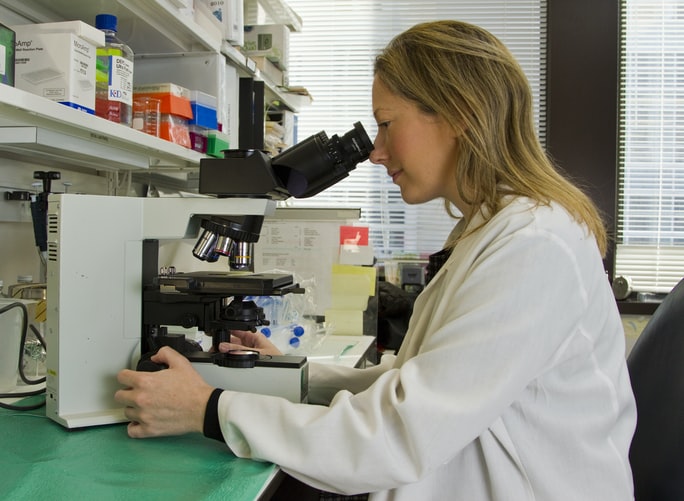According to 2015 data from the National Institute on Alcohol Abuse and Alcoholism, over 25 percent of people over the age of 18 have engaged in binge drinking in the past month. An estimated 88,000 people die each year due to alcohol-related causes. A study from 2009 found that alcohol was responsible for about 20,000 cancer deaths in the United States.
Alcohol is known to be a risk factor for cancers of the head and neck, liver, colon, rectum and breast. It is clear that alcohol is a major contributor to cancer mortality, resulting in about 3.5 percent of all cancer deaths in the country. Understanding that there is a definite link between alcohol consumption and cancer is important and can help people who may be more at risk due how much they drink. If you or someone you love has a problem with drinking, being aware of the risk of cancer can be enough motivation to make a change.
Reducing alcohol intake or cutting it out completely can be hugely beneficial for health and will massively reduce risks of being diagnosed with some types of cancer. However, quitting alcohol, or other substances, is a hard thing to do and, in some cases, can be dangerous depending how serious the drinking habit is.
How Alcohol Rehab Programs Can Help
One way to prevent the problem of alcohol-related liver diseases is to reduce the risk of even being diagnosed with the disease in the first place. Reducing drinking or stopping altogether can have a massive effect on your chances of being affected by a number of cancers.
People dealing with serious alcohol consumption problems are especially susceptible to alcohol-related diseases and cancers. If you or a loved one may be suffering from alcohol substance abuse issues, it may be beneficial to contact an alcohol rehab program to address the problem.
Going through alcohol rehabilitation can be a frightening thing, especially if you don’t know exactly what to expect. However, learning what may happen during your time in treatment can make it a more comfortable situation.
Depending on the severity of the alcoholism, it is likely that the patient will undergo a detoxification program when they are first admitted to the facility. When someone develops a dependence on alcohol and the drinking stops abruptly, they can develop withdrawal symptoms just 6 hours after their last drink. Going through the detox program allows the patient to get through the withdrawal symptoms under physician supervision, to ensure safety, which will allow them to focus on the psychological aspects of their disease following detox. Some symptoms that occur during alcohol withdrawal include:
- Anxiety
- Shakiness
- Unstable changes in blood pressure and heart rate
- Hallucinations
- Sweating
- Loss of Appetite
After the detoxification process, a patient will enter into the inpatient, or residential, care part of the treatment program. This generally takes between 30 to 90 days depending on the facility. During inpatient care, patients are supervised throughout the day by treatment professionals as they go through therapy sessions, social events and support meetings.
Group Therapy
Group therapy is an important aspect of the recovery process because it helps maintain and build social skills while discussing and confront issues related to substance abuse with others who are in similar situations. There is a wide range of topics that group therapy session cover including the 12-step process, SMART recovery and broader topics such as fighting cravings and how to avoid relapses.
Individual Therapy
As important as it is to face to problems in a group setting, individual therapy can be helpful as well. It will allow therapists or counselors to learn more about their patients on a personal level and build trust which will help give them the individualized care that they require. There are a number of topics that individual therapy will cover, including Cognitive-Behavioral Therapy, CBT.
CBT is a very useful tool that is used in treatment. During these sessions, patients will confront and address specific triggers that lead to substance abuse. Understanding and identifying these triggers allows the patient and the therapist come up with responses to these triggers that can help them in post-inpatient care.
Support meetings
Similar to group therapy session, support meetings are structured to allow patients to interact with other people going through the program in similar situations. This type of interaction allows patients to build trust, camaraderie through storytelling, feedback and advice. It gives patients the opportunity to unwind and reflect on what they have learned and come to terms with that day. Patients who meet during support meetings and group therapy sessions can lead to long, supportive relationships that well into recovery.
Activities
Besides the therapy and meetings that patients go through during their time in inpatient care, they also participate in activities and other forms of socializing. A few activities that patients will participate in include exercise and music therapy.
Following inpatient care, patients are discharged from the facility and generally will participate in outpatient care for a few months while getting on their feet.
Outpatient care allows patients to continue a structured recovery process while moving to a more independent environment and getting reintegrated into society.
During outpatient care, patients will continue to go through therapy sessions and support groups a few days a week, but are generally left on their own for a majority of the week.
Types of Alcohol-Related Cancer
When drinking alcohol, the body breaks it down and creates a chemical called acetaldehyde. Acetaldehyde is known to cause cancer as it damages the body’s DNA and prevents the body from repairing the damage. When the DNA is damages, a cell may begin growing out of control with no way to stop which can create a cancer tumor. Buildup of acetaldehyde can increase your risk of being diagnosed with cancer.
Oral and Neck Cancer
According to the Oral Cancer Foundation, drinking more than 21 standard drinks throughout the week is the second largest factor for the development of oral cancer.
“The dehydrating effect of alcohol on cell walls enhances the ability of tobacco carcinogens to permeate mouth tissues; additionally, nutritional deficiencies associated with heavy drinking can lower the body’s natural ability to use antioxidants to prevent the formation of cancers,” the foundation says.
They also said that using alcohol and tobacco together amplifies the effect of the other and puts greater risk
A few signs that may signal oral cancer include red or white lesions on the inside of the mouth on the sides or under the tongue, swelling, or a single ulcer that has been present for more than two weeks. If you are experiencing any of these symptoms it is recommended that you see a healthcare professional.
Liver Cancer
According to the American Cancer Society, heavy drinking and alcohol abuse can lead to an increased risk of liver cancer through cirrhosis. Cirrhosis is a three-stage disease that affects the liver. Cirrhosis is a condition in which scar tissue replaces healthy liver tissue and leaves the liver scarred and permanently damaged. This leads to problems with blood flow to the liver and, if the problem continues to get worse, can lead to liver failure and death.
It is estimated that 1 in about 400 adults in the country have cirrhosis and it is most common among adults ages 45 to 54. However, the numbers may be higher because many people are not diagnosed.
Heavy alcohol use has been linked to an increased risk of liver cancer. The inflammation and scarring associated with cirrhosis also increases the risk of liver cancer.
Colon and Rectal Cancer
Heavy and moderate alcohol use has been linked to colorectal cancer and while for many types of alcohol-related cancers, reducing alcohol intake can have many health benefits including lower cancer risk, however that may not be the case for colon and rectal cancer. Unfortunately, even drinking lightly, one drink per day, has been found to lead to increase risks of bowel cancer.
There is also some evidence that colon and rectal cancer are hereditary, making it more likely to develop this type of disease if a family member has been diagnosed from it. About 5 percent of bowel cancer cases occur in people who have other family members with bowel cancer.
Breast Cancer
Even just a few drinks a week is linked with increased risk of breast cancer for women but the risk increases with the amount of alcohol consumer. According to the American Cancer Society, women who have 2 to 3 drinks a day have a 20 percent higher risk compared to women who don’t drink alcohol
Getting screenings and other early detection tests such as mammograms can help catch the cancer before it is able to spread, making it easier to treat. The American Cancer Society says that breast cancers that are found during screening exams are more likely to be smaller.
Lowering Cancer Risk
While there is always the option of participating in an alcohol rehab program, for people with less severe drinking problems, simply reducing drinking can be an effective way to reduce chances of alcohol-related cancers.
The recommended amount of alcohol use for women is 12 ounces of beer, five ounces of wine or 1.5 ounces of liquor the amount is doubled for men. Sticking to this type of moderate drinking and avoiding heavy or binge drinking can heavily reduce the chances of getting some type of alcohol-related cancer.
Along with reducing drinking, there are a number of steps that can be taken to reduce chances of being diagnosed with cancer. For example, tobacco is one substance that increases the likelihood of getting cancer. The American Cancer Society says that tobacco use in the United States is responsible for 80 percent of lung cancer deaths and 30 percent of all cancer deaths. Tobacco and alcohol are two substances have disastrous consequences on the body’s health and greatly increase the risks of being diagnosed with cancer.
Other preventative measures that can be taken include:
- Prioritizing physical activity
- Keeping a healthy weight
- Eating a balanced diet that includes fruits and vegetables
- Protecting the skin from too much exposure to sun or tanning beds
Exercise is huge for maintaining physical health, getting at least 150 minutes of moderately-intense activity or 75 minutes of vigorous activity throughout the week is recommended.
Along with exercise, diet is just as important and can, in some cases, be more important. Foods like vegetables, fruit, whole grain, fish and poultry are all linked to a lower risk for developing cancer. Meanwhile, eating more processed meat and red meat has been linked with a higher risk of developing some cancers. It is recommended to eat at least two and a half cups of fruits and vegetables per day, choosing breads and pastas made from whole grain, and eating less sweets.
Getting regular screenings for cancer is also very important. Early detection of cancer can be easier to treat, by the time symptoms appear, the cancer may have already begun to spread and is significantly more difficult to deal with.
All of these things and limited or taking alcohol out of the equation completely can help protect the body from developing some types of cancer, especially mouth, liver, colon and breast cancers.
In Conclusion
If you believe your loved one is suffering from alcohol abuse, our facilities at Landmark are here help. Our alcohol treatment centers have various programs that focus on personal care that can help patients on their way to recovery. Along with our programs, we also have a blog that can help patients and individuals stay motivated and educated as they learn about substance abuse. With Landmark Recovery’s alcohol rehab, we can help you or a loved one get back to living a healthy lifestyle.

Choose Recovery Over Addiction
We're here 24/7 to help you get the care you need to live life on your terms, without drugs or alcohol. Talk to our recovery specialists today and learn about our integrated treatment programs.






